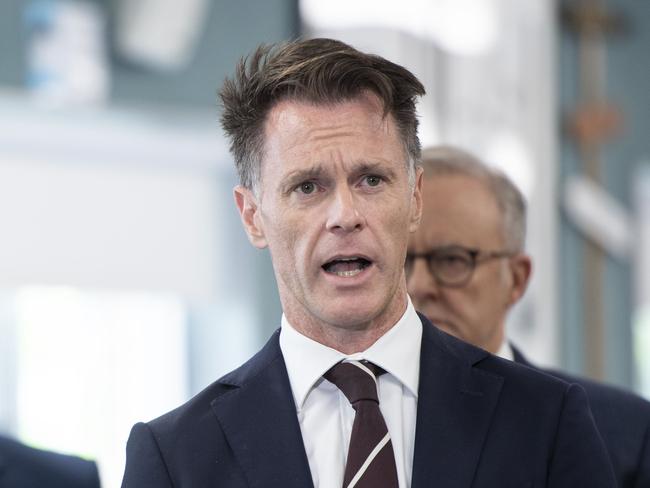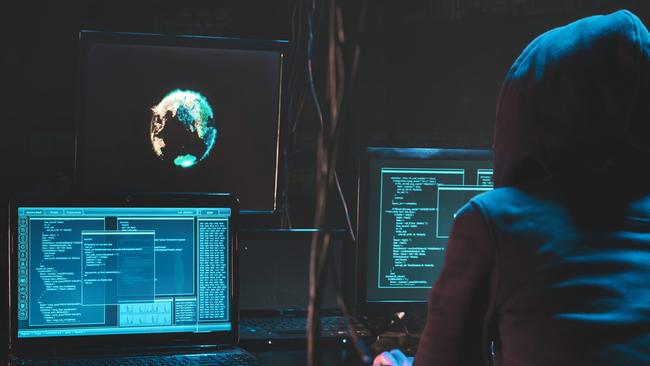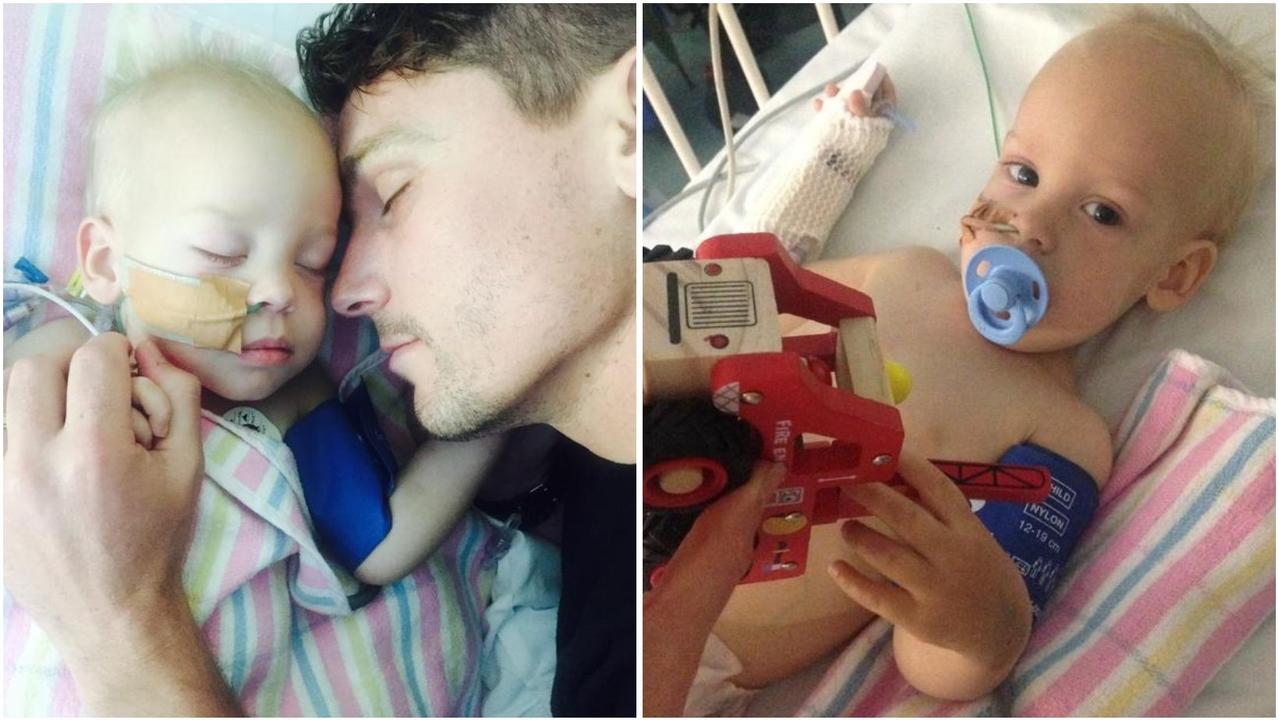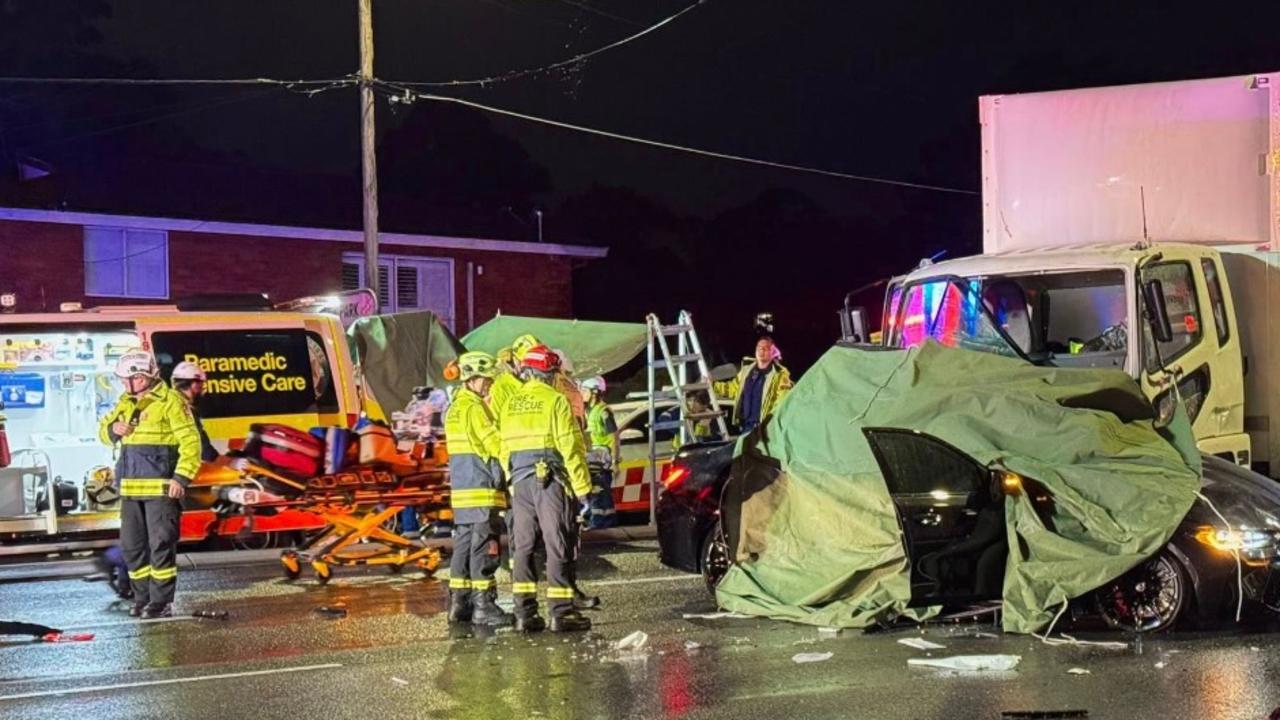Public servants targeted in ‘sickening’ deepfake scandal
Premier Chris Minns has indicated changes to the law could be made after a deepfake attack aimed at female public servants has rocked Canberra and exposed a legal loophole allowing perpetrators to escape criminal charges.

NSW
Don't miss out on the headlines from NSW. Followed categories will be added to My News.
A deepfake scandal targeting high level public servants has rocked Canberra as a legal loophole has emerged allowing perpetrators who create explicit AI-generated images of adults to escape any form of criminal charges.
The Daily Telegraph can reveal at least 16 women – some working in high level public service roles in Canberra – have been depicted in more than 100 deepfake nude images created by a 23-year-old ACT man.
Multiple victims, who reported the man to ACT Police last month and are aged in their 20s and 40s, said they had been left “sickened” and “distraught” over the incident.
The federal government last year introduced new laws banning the sharing of deepfakes, imposing jail terms of up to seven years.
But experts say the laws don’t go far enough, with Victoria being the only state in Australia to criminalise the creation of sexualised deepfakes without a person’s consent.

In NSW, ACT, and other states, it’s only seen as a criminal offence if there is evidence of either threats of an image being shared online or circulation of them.
However, New laws banning the creation of explicit AI images without a person’s could be on the cards after Premier Chris Minns said the state’s current rules weren’t “keeping pace with technology”.

The Premier said he was “surprised” the laws around the creation of deepfakes weren’t tougher after the Daily Telegraph revealed today 16 high-level Federal public servants working in Canberra were unable to get justice after a 23-year-old man created over 100 nude images.
“We’re looking at it very closely…I’m looking at changes to the law to protect people,” Mr Minns said on Monday.“We’re in a rapidly changing technological environment. AI means it’s easier than ever to make these kinds of often malicious, often malignant images.“The rules aren’t keeping pace with technology at the moment and we’re going to act to keep people safe.”
An ACT Police spokesman confirmed police had investigated the incident, saying that no charges could be laid as there was “no evidence to support the distribution (or threat of distribution) of the images”.
“There is no relevant offence for creating and/or possessing such images,” he said.
The man, who knew all of the women he targeted, created dozens of explicit photos of them using AI tools by uploading images from their social media accounts.
The women, who have asked to remain anonymous due to fears of losing their jobs and security clearances, became aware of the deepfakes after one of the victims saw her image and other victims superimposed on pornographic photos on the man’s phone.
One woman, who had known the man for more than almost a decade, said she had been left “traumatised” after discovering he created multiple fake nude images of her.
“We are all so sickened that the laws have failed us in this way where a perpetrator can create fake explicit images of women and get away with it,” she said.
“Even though police couldn’t find evidence of the images being shared, creation of them should be enough to charge him.”

Another victim, who had known the man for more than five years, said she feared fake explicit images of herself had been circulated in the community.
“I am completely distraught and I had to take time off work,” she said.
“Some of the women have received messages from a burner account on Instagram saying the fake images had been shared in a few group chats, it’s really disturbing.
“All of this evidence was given to the police, but they still couldn’t charge him, we feel completely and utterly failed by these outdated and flawed laws.”
The revelation has prompted calls from NSW criminologists and family violence experts, who say victims needed reassurance that laws would be consistent in every state to criminalise the creation of explicit deepfakes without their consent.
The eSafety commissioner received 7270 reports about image-based abuse and requested removal from more than 947 locations across 191 platforms and services between 2023 to 2024.
Macquarie University criminologist Dr Vincent Hurley, who spent almost 30 years in the NSW Police force, said every state and the Commonwealth in Australia should have laws that are “uniformed” to protect victims of deepfakes.
“The job of the government is to make society better and I think they are failing women miserably,” Dr Hurley said.

Full Stop Australia Clinical and Client Services director Tara Hunter, whose organisation provides support to domestic violence victims, said: “It is essential that legislative responses to violence and abuse promote safety for victim-survivors and accountability for the perpetrators of this abuse.”
Cyber safety expert Susan McLean said there was clearly a “loophole” that was failing to protect victims of image-based abuse.
Activist, author and consent campaigner Chanel Contos said: “Laws need to stay up to date with modern violations and perpetrators of abuse.”
A spokesman for federal Attorney-General Mark Dreyfus said the behaviour reported to ACT Police was abhorrent conduct, designed to intimidate and degrade.
“The Albanese Government will always consider law reform proposals that keep people safe,” he said.
NSW Acting Attorney-General Ron Hoenig said the production and dissemination of deepfake pornography was being examined by a NSW parliamentary inquiry.
One of the inquiry’s recommendations includes urging the NSW state government to criminalise the creation of explicit deepfakes, saying it should be a stand-alone offence with its own criminal penalty, whether or not the images are distributed.
Do you have a story for The Daily Telegraph? Message 0481 056 618 or email tips@dailytelegraph.com.au
More Coverage
Originally published as Public servants targeted in ‘sickening’ deepfake scandal




